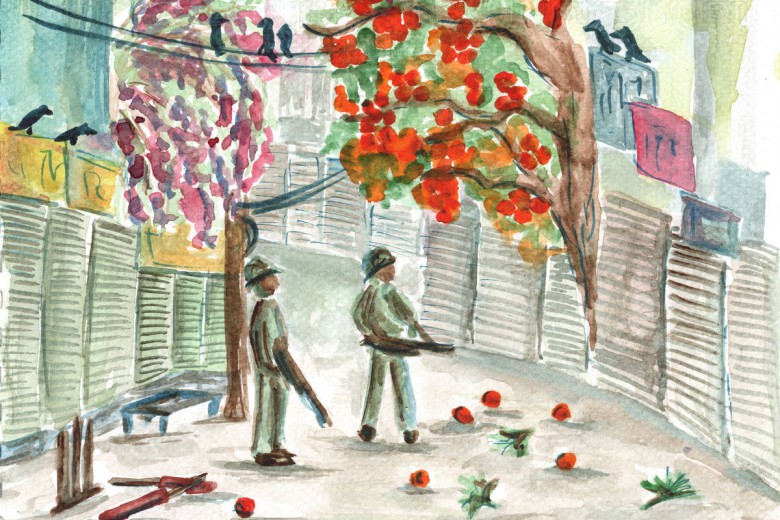How do you know you want something that you have never had? How do you fight for something that you have never seen or experienced?
Tuition fees doubled in Canada before most of the students currently attending college or university were born and have only risen since (as if the cost of education were indexed to time itself). How does a student today decide that tuition should be free, that education shouldn’t be a commodity? Or how does a student journalist, forced to compete with an army of young peers, decide that a coveted but unpaid internship with the CBC is exploitative, especially when even the union representing workers at the public broadcaster endorses such unpaid work on its own shop floor?
The term horizon of expectations comes from the field of literary theory and goes back to the early ’70s (when university tuition was free or approaching free in Canada, incidentally). The Dictionary of Media and Communication defines a horizon of expectations as, “The shared mental set or framework within which those of a particular generation in a culture understand, interpret, and evaluate a text or an artwork.” When applied to social issues more broadly, the concept can help us to think about the factors that shape what people believe is possible, and how a generation of people interpret their own circumstances. And that goes straight to the heart of politics and political organizing.
When I returned to university to do an MA I met an older student, in his 30s, who was completing an undergraduate degree in English. Growing up, his dad had been a prison guard in Innisfail, Alberta, his mom was a homemaker, and going to university just wasn’t something that people did in his world. Attending university didn’t appear on his horizon as a possibility until he was in his late 20s and one day a co-worker said, “Hey man, you are always reading obscure books and talking about poetry. You should go to university.” The last time I caught up with this friend he was doing a PhD in Vancouver and acting as a rep in his union.
I mention this not because everyone should go to university but because it often takes an intervention, a foreign perspective, to unsettle the expectations that we have inherited. Raising political expectations for ourselves and for others – making radical demands – is difficult when the great social movements of the ’60s and ’70s seem so distant and fatalism is so widespread today. But we must refuse to accept the world as it is presented to us. With this issue of the magazine, like each before it, our hope at Briarpatch is that we make raising people’s expectations easier – and raising hell together more likely.
Writing in the Margins Contest Winners
This issue of Briarpatch features the winners of our fourth annual Writing in the Margins creative writing contest. Among the entries submitted by writers from across North America, Briarpatch would like to congratulate Terry Trowbridge for his poem “Coyote Mothers of the Niagara Region,” chosen by judge John K. Samson, and Stacey Forrester for her non-fiction story “That Guy Who isn’t You,” chosen by judge Candace Savage. Both are proudly published in this issue.
Fabienne Calvert Filteau’s poem “Salmon Glacier” and Kathleen Yearwood’s daring non-fiction story “Sometimes When I think of Evan” are this year’s well-deserving runners-up. Both are published online. Cassidy McFadzean takes home the prize for best entry from our hometown of Regina for her poem “A Skin for A Skin.” That’s online, too.
Thank you to our inspiring judges, John K. Samson and Candace Savage, who took time from their busy schedules to support emerging writers. Special thanks also to the Regina Public Interest Research Group and the Willow on Wascana for their support. And to the many courageous writers who shared their stories and poetry with us, thank you most of all.



_780_520_90_s_c1_c_c.jpg)

